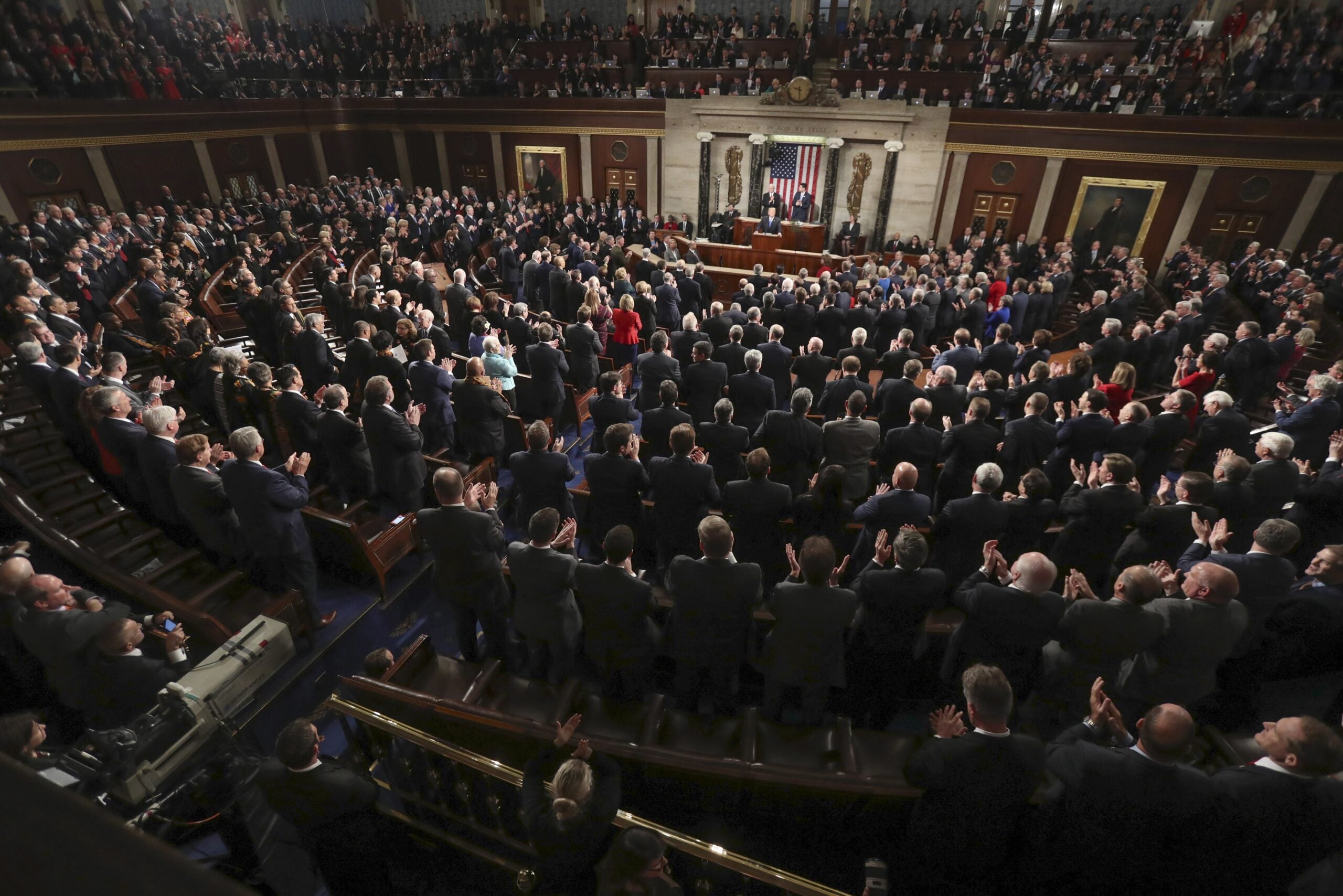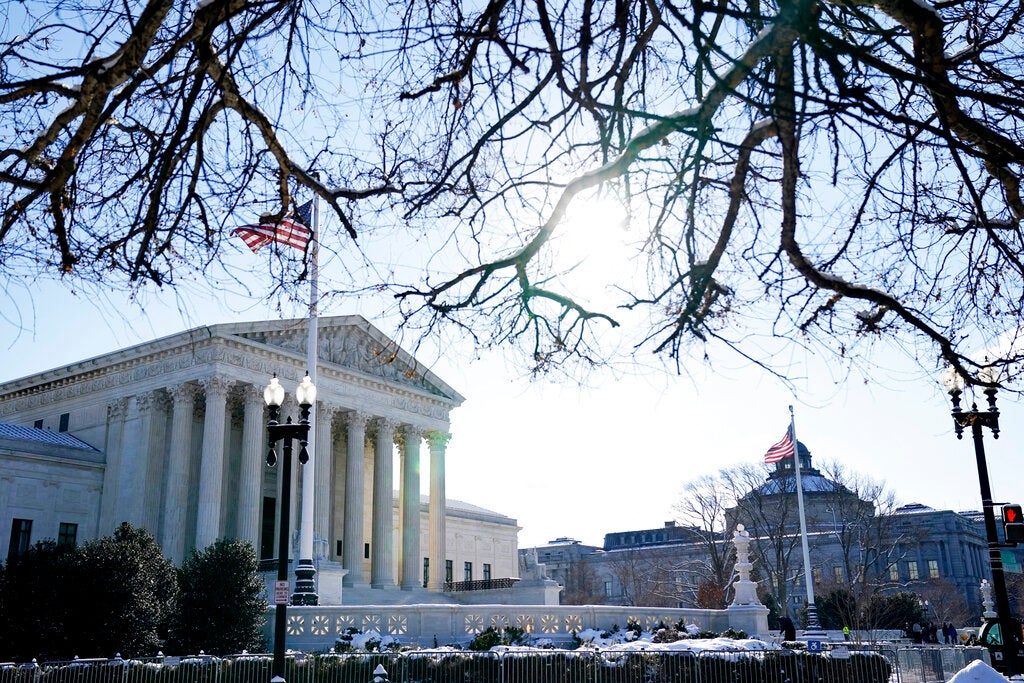A recent U.S. Supreme Court ruling limits the authority of federal agencies to issue regulations, drawing praise from Wisconsin’s largest business group and fears among state environmental advocates.
Last week, the court’s conservative majority overturned a 40-year-old legal doctrine known as the “Chevron deference,” which stems from a 1984 ruling involving the energy firm. The 6-3 decision ended a legal precedent that allowed courts to defer to an agency’s reasonable reading of the law where it’s unclear. The ruling shifts power from regulatory agencies to the courts and Congress.
Clean Wisconsin issued a statement on Friday, calling the decision “a disaster for the environment.” Evan Feinauer, the group’s staff attorney, told WPR the ruling makes it easier to toss out recent environmental regulations developed by the Biden administration to reduce pollution, replace lead pipes and set limits on PFAS in drinking water.
“If you care about having water that doesn’t have lead in it, if you care about having water that doesn’t have PFAS in it, if you care about doing something about climate change, if you care about having vehicles that don’t spew pollution, if you care about not breathing ozone (pollution) every day, this should concern you and scare you greatly,” Feinauer said.
The decision has far-reaching effects on regulations beyond the environment. It would also affect safeguards for public health, workers, food safety and other issues. Supporters say Chevron relied on the idea that agency experts were better able to interpret the law than unelected judges. But conservatives and business groups argued Chevron expanded the power of what they refer to as the “administrative state.”
The head of Wisconsin Manufacturers and Commerce, the state’s largest business group, applauded the court’s ruling in a statement Friday.
“The decision will rightfully return lawmaking to the elected representatives in Congress, instead of leaving it in the hands of unaccountable bureaucrats. This is an important corrective step to rein in the suffocating effect of the regulatory state on Wisconsin businesses,” said Kurt Bauer, the group’s president and CEO.
WMC pointed to a report from the National Association of Manufacturers that estimated it costs businesses around $13,000 per worker each year to comply with federal regulations.

News with a little more humanity
WPR’s “Wisconsin Today” newsletter keeps you connected to the state you love without feeling overwhelmed. No paywall. No agenda. No corporate filter.
State conservative law firm says it’s likely to challenge agency decisions
As those regulations are now easier to strike down, one conservative law firm in Wisconsin said it’s likely to pursue more litigation against federal agency actions.
Lucas Vebber, deputy counsel for the Wisconsin Institute for Law and Liberty, said the deck was previously stacked against those challenging agency decisions or rules.
“It’s safe to say that our organization views this as essentially leveling the playing field, and gives us a fair shot at potentially challenging a wrongful interpretation of agency law without having to go up against the deference to the agency,” Vebber said.
Steph Tai, law professor at the University of Wisconsin Law School, said the decision means that litigants, regardless of whether they’re conservative or liberal, will likely bring cases before courts that align with their own political preferences despite claims that judges are impartial.
“They’re going to pick judges that are more likely to be sympathetic to their argument that whatever federal regulation should be overturned,” Tai said.

Challenges to federal agency rules could affect state regulation
If challenges overturn federal regulations, environmental advocates say that could affect protections in Wisconsin. For example, Feinauer pointed to EPA standards for PFAS in drinking water. Under the Safe Drinking Water Act, states must meet the minimum federal standard for contaminants in tap water. While Wisconsin has limits on the chemicals, they’re not as stringent or protective as the federal regulation.
“So whether we have the regulations at the federal level can have a direct impact on whether or not we have the regulations at the state level,” Feinauer said.
Even so, Vebber contended that Congress writes the laws and has the power to change them if they disagree with any court’s interpretation of the statutes. He added that the Wisconsin Supreme Court eliminated the state’s version of Chevron deference to agencies in a 2018 ruling.
“It gets to kind of the core functions of the judiciary, and the judiciary’s role as declaring what laws mean, not deferring to executive branch agencies as to what they believe the laws mean,” Vebber said.

Ruling puts onus on Congress to spell out more details in laws
Tai said the ruling puts the onus on Congress to provide more details or make laws clearer.
“That’s hard for Congress because they don’t necessarily know all the technical stuff,” Tai said, noting ambiguities exist at times because they don’t have all the information available.
Legal experts say laws usually don’t spell out how to deal with emerging threats like climate change that weren’t at the forefront when bedrock environmental laws were written.
While the state Supreme Court made a similar ruling in 2018, Tai said it’s difficult to predict what may happen at the federal level based on Wisconsin’s shift away from deferring to state agencies.
They said the reason is that many barriers exist for state agencies to pass new regulations. Tai noted those include a law, known as the REINS Act, that requires legislative approval of rules that are too costly in addition to legislative committees that have blocked funding requests or regulations to implement state law.
Even so, Tai and Feinauer said some are predicting that Friday’s decision will create more barriers for federal agencies to develop regulations. Feinauer said it could have a chilling effect on regulators who may decide it’s not worth the time and resources to write rules that a court may later overturn. As for conservatives, Vebber said the goal has always been to ensure that regulations follow the law as written.
Wisconsin Public Radio, © Copyright 2025, Board of Regents of the University of Wisconsin System and Wisconsin Educational Communications Board.







